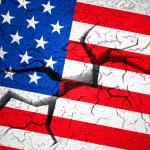Join Cameron English and Dr. Chuck Dinerstein on Episode 147 of the Science Dispatch podcast as they discuss:
fear
One of the consequences of the confused and, at times, complicated messaging of our public health system and the 24-7-365 drumbeat of the media is that fear has been a primary driver during COVID times.
Escalators are pretty hazardous too – the husband of a former boss of mine worked on escalators.
"I'm going to lose the script, and I'm going to reflect on the recurring feeling I have of impending doom. We have so much to look forward to so much promise and potential of where we are, and so much reason for hope.
When it comes to staying at home, what is the most significant driver, our government, or our beliefs? A working paper from the National Bureau of Economic Research teases out the different effects of fear and policy in lockdowns.
All you have to do currently to encounter an influx of negativity and persistent “what ifs” or anxiety is turn to social media or any news outlet. This pervasive, chronic theme—no matter where you fall on the political spectrum—has been ever
It's amazing what lengths a company will go to in order to sell you something.
In today s Science section, NYTimes Jane E.










